Startup Tales | How Test1 saves nature from oil spills
Innovative SME has developed an innovative circular material that absorbs oils and hydrocarbons with greater effectiveness and lower costs compared to traditional methods.
Founded in 2014 in Nave (BS) by Alessandro Taini, Andrea Pavoni and Giorgio De Vitalis, the former startup and now innovative SME has developed an innovative circular material that absorbs oils and hydrocarbons with greater effectiveness and lower costs compared to traditional methods.
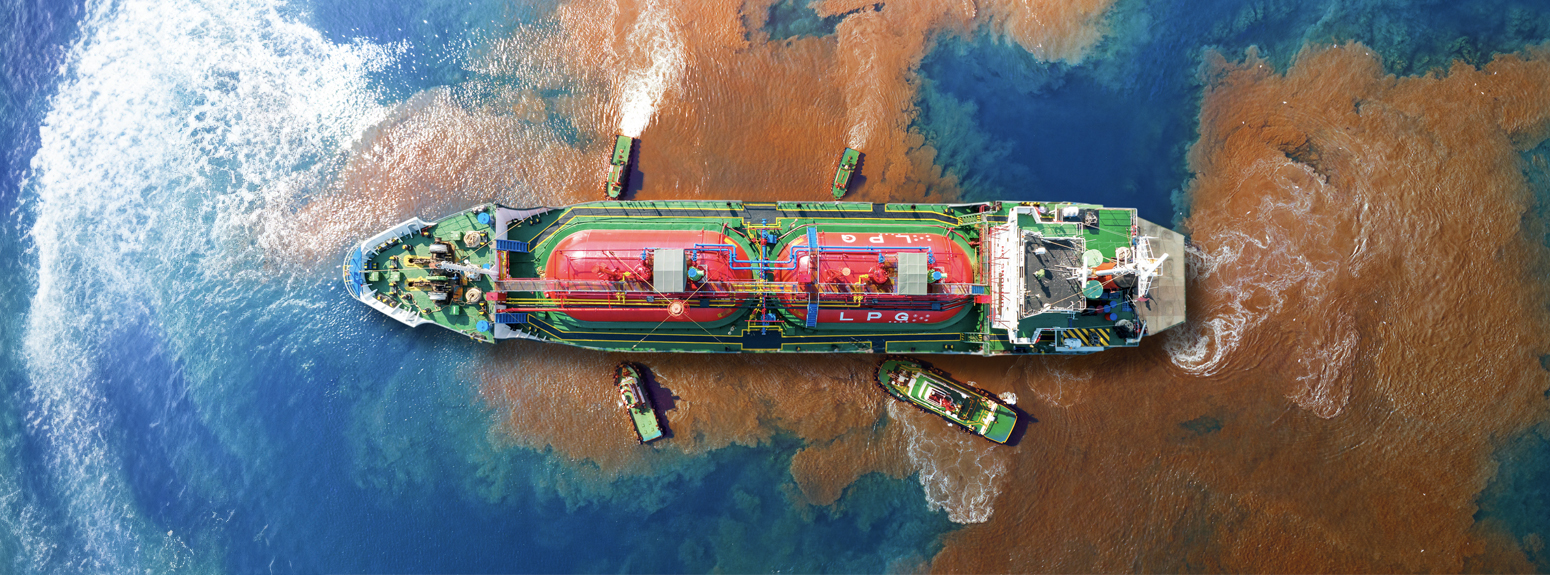
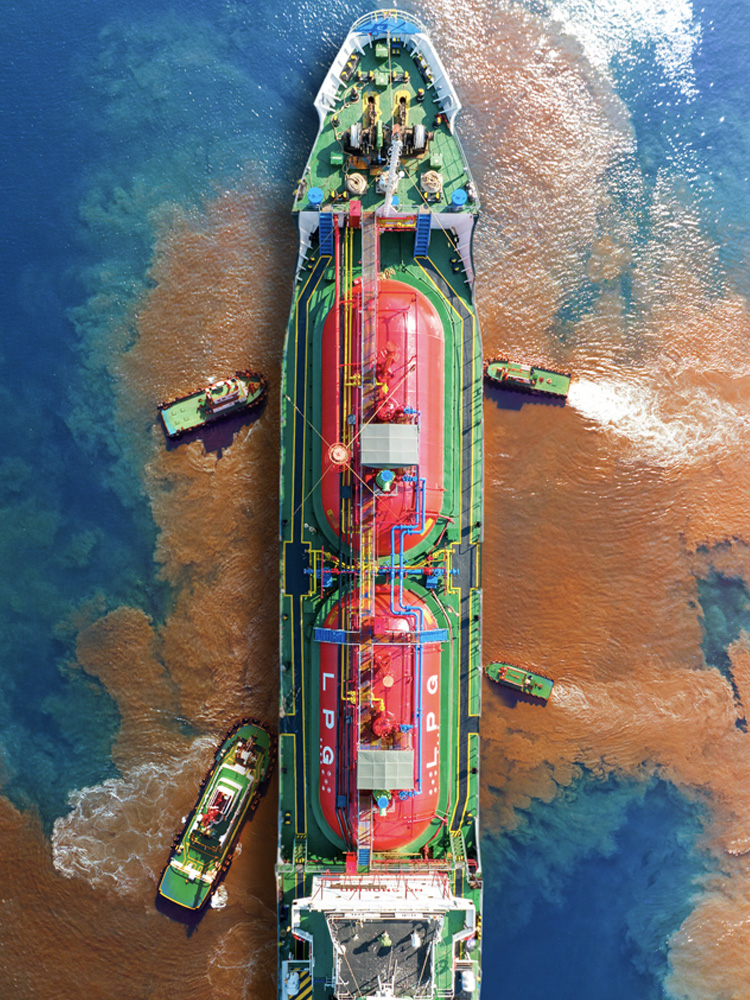
The spills of oils and hydrocarbons into water and soil are one of the most devastating forms of environmental pollution caused by man, irremediably compromising the ecosystem also from the faunal point of view. For example, according to data released by the Italian “Istituto Superiore per la Protezione e la Ricerca Ambientale”, almost 600 tonnes of these substances are dumped in the Mediterranean Sea alone every year with dramatic consequences.
To effectively solve the problem overcoming the limits of traditional solutions Alessandro Taini (CEO), Andrea Pavoni (CFO) and Giorgio De Vitalis (CTO) in 2014 founded the innovative startup (now SME) and Benefit Company Test1 in Nave (Brescia), developing a circular and patented solution renamed FomFlex200. A polyurethane “sponge” capable of selectively absorbing oils and hydrocarbons for about 30 times its own weight, reusable up to 200 times after each wrinkling. Stripping that takes place with special machines made by T1 Solutions, allowing the recovery of what absorbed by the innovative material that can be used in many sectors.
Origins, birth and first steps of Test1
Test1 was founded in 2014 as an innovative startup when two of the three co-founders were still university students, and in its first years of activity has focused on R&D to arrive at the patented formula (also in the United States) on which FoamFlex200 is based. In 2016, the innovative startup also started a phase of market analysis and experimentation - conducted in collaboration with organizations active in the oil sector, research laboratories and Italian and international universities - to test the effectiveness of the material and to validate the product.
Features and operation of FoamFlex200
The innovation realized by Test1 is an open cell polyurethane foam whose shape is similar to a spongy carpet, has a hydrophobic effect greater than 95% that allows to recover all types of oils and hydrocarbons with a manual wringing process - through dedicated machines - which keeps them 'intact', making it possible to use what is absorbed without rework.
In addition, FoamFlex200 absorbs oils and hydrocarbons up to about 30 times their weight, and after the wringing with special machinery can be reused up to 200 times: 1 Kg of Made in Italy material can therefore absorb up to 6 tons of hydrocarbons quickly. FoamFlex200 is then disposed of without other substances in it and generates almost no amount of waste, resulting in line with the paradigm of the circular economy throughout the life cycle.
As explained by the technical manager Giorgio Devitalis “it is an important innovation in the oil-absorbing solutions market, which is currently worth 4 billion”. Specifically, “absorption occurs by contact and capillarity: when FoamFlex200 is supported the main performance takes place in the water by contact, since it floats on it just like oil and hydrocarbons, with cells that absorb them quickly holding them inside even in very rough sea conditions. While there is selectivity for water, there is no selectivity with respect to the type of hydrocarbons and absorbable oils, which can therefore be of mineral origin, synthetic or the common olive oil used for cooking” clarifies De Vitalis.
“Furthermore, the reusability of FoamFlex200 and the clean disposal inside significantly reduces CO2 emissions (99.8%) compared to the polypropylene traditionally used for renovations, as emerged from the Life Cycle Assessment certifications that evaluate the carbon footprint”, points out the co-founder of T1 Solutions.
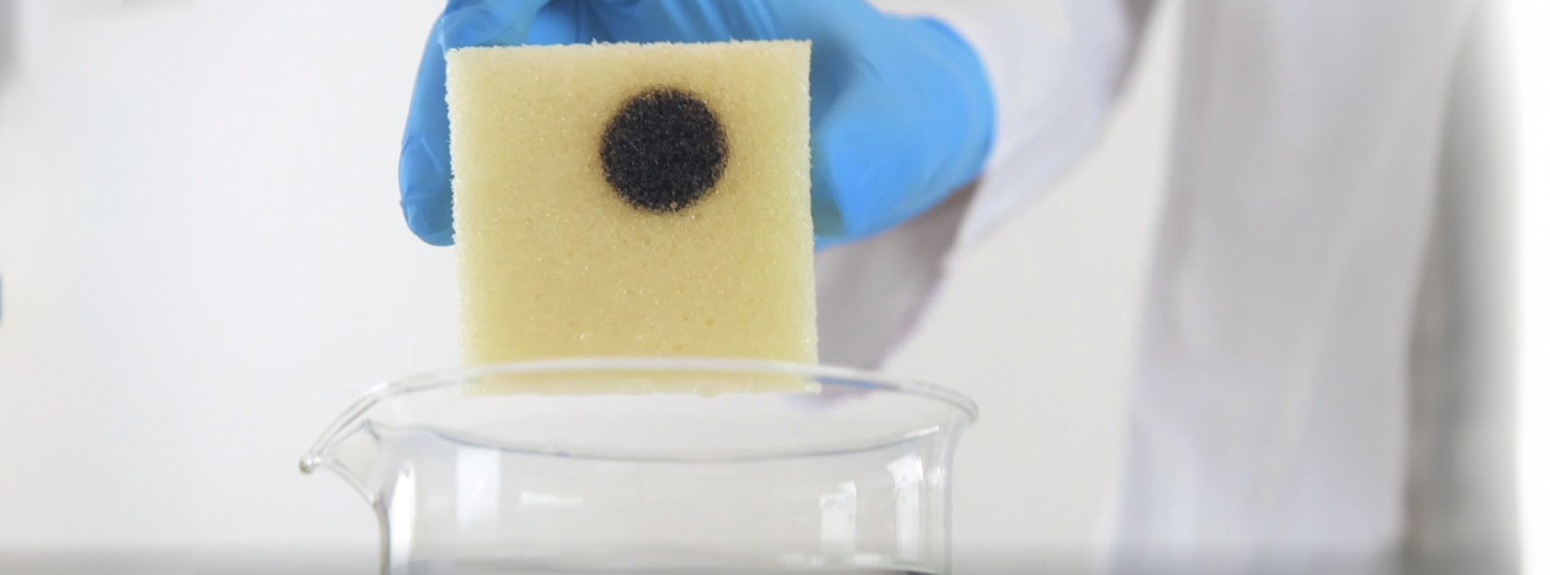
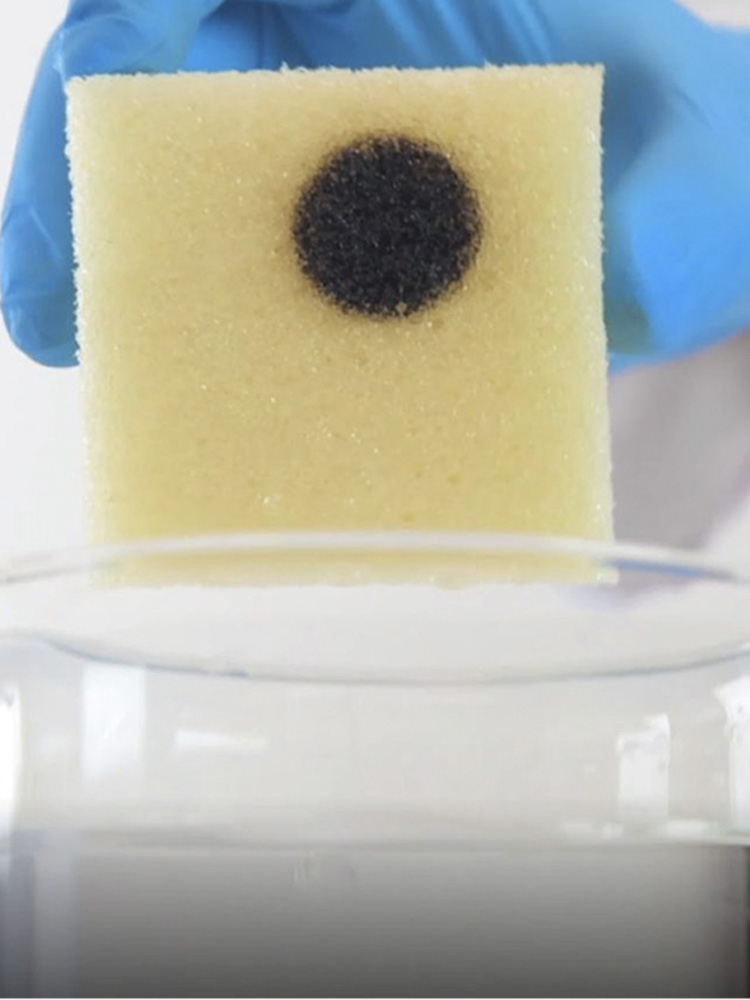
The first “field” trial of FoamFlex200 followed by other successes
In 2018, aided by the storm Emma that caused the shipwreck of several boats in Port Gran Tarajal of Fuerteventura in the Canary Islands (Spain) causing the spilling of 150 tons of fuel and oils of various kinds in the sea, for the first time T1 Solutions has tested its innovation outside the laboratory.
FoamFlex200 allowed the recovery of 55% of what was spilled into the sea and the reuse of 57 tons of mixed oils despite the reclamation began three days after the accident, demonstrating speed, ease of transport and use (8 volunteers were involved for the rehabilitation), as well as superior effectiveness to polypropylene-based solutions with higher costs both economically and environmentally.
After the restoration was also carried out “a scientific paper, since it emerged as the speed of the absorption operations, lasted three days, ended without leaving sediment on the seabed”, stresses the CTO of Test1. The innovative PMI - that from 2018 has a center of representation in the United Kingdom (Edinburgh) and in 2019 has acquired a productive plant in Nave that has marked the beginning of a more structured job - then carried out other successful operations to respond to critical events in the port of Palau (Sardinia), Portici (Naples), on Lake Garda and Switzerland due to a spill of diesel in the river Ticino.
The fields of application of the innovative and circular material of Test1
After a 2020 inevitably characterized by the effects of the pandemic from Covid-19, however useful to update the formula and continue the R&D activities, as in the chemical sector many elements are banned as harmful, in 2021 Test1 resumed working at full capacity. The first market on which the innovative SME has focused has been oil & gas, “but the sector has proved more complex and in the long term because big companies operate there and changes in processes are slow”, explains De Vitalis.
“Consequently - the Test1’s CTO continues - we have modified our business strategy passing to the naval field, that it is that with greater traction to the moment and in which we have already supplied some fleets with our material” Also because Regulation 37 of Annex I of MARPOL - International Convention for the Prevention of Pollution caused by ships - requires that oil tankers with gross tonnage exceeding 150 tons and all ships with tonnage exceeding 400 tons have an emergency plan for oil pollution (SOPEP) equipping itself with special supplies such as FoamFlex200.
“Moreover, we are working with lifegate to the plan Water Defenders Alliance, that it allows us to supply FoamFlex200 to 99 Italian ports besides 4 protected marine areas in order to maintain clean the water, leaving from that of Favignana”, continues the co-founder of Test1. In Favignana, in fact, the Lombardy scaleup has created contingency hubs: structures in which wrists and material are stored, with quantities calculated according to specific needs. Always in the within “ports and marine” sector, the innovative PMI has covered almost all the ports of the Sardinia, replacing the polypropylene with FoamFlex200.
Finally, emphasizes De Vitalis, “we are entering the industry in general since there are many who use oils and hydrocarbons. The demand is strong as all companies are moving in a sustainable way looking also at the economic aspect with our material offers huge advantages in this sense”
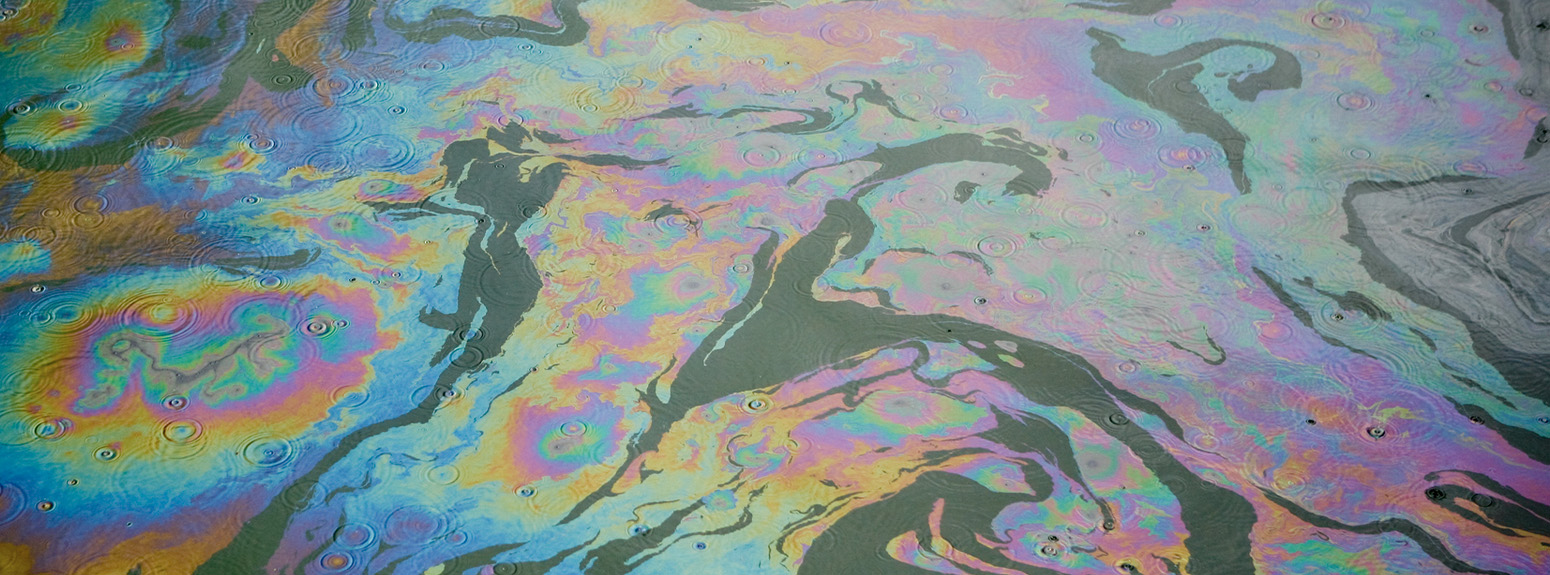
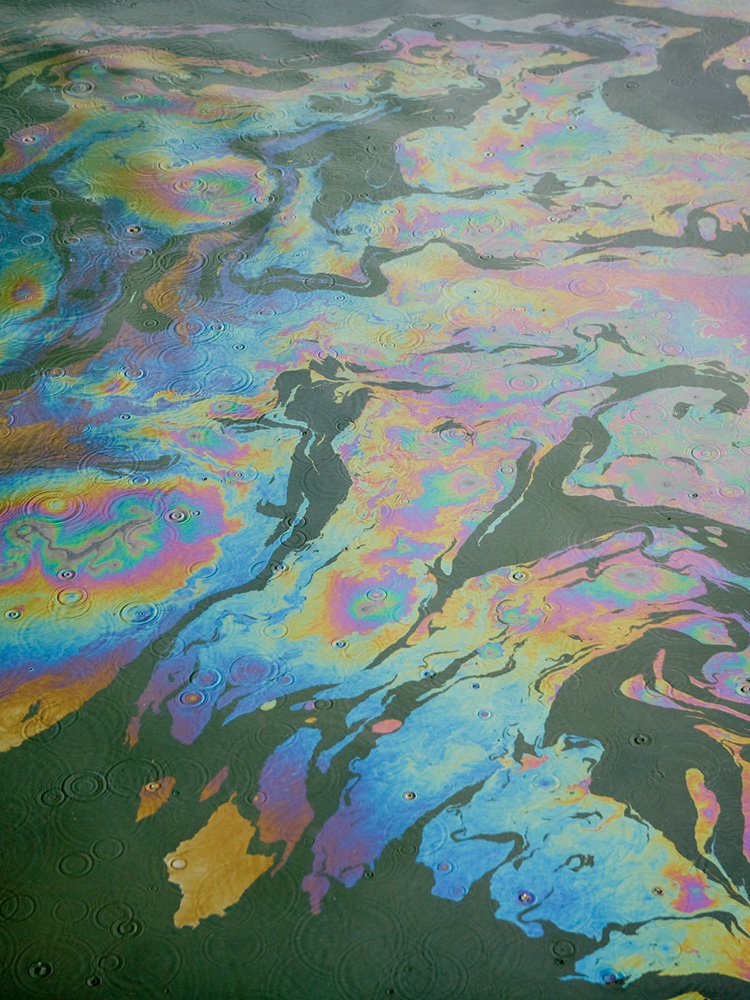
Awards, awards and investment rounds: how Test1 grew after the pandemic
In the growth path of Test1 there have been awards and awards for the developed solution. For example, in 2018 FoamFlex 200 (tested according to ASTM protocol and certified by the Italian Ministry of the Environment) was selected among the 10 best innovations in the sector by the oil&gas Technology Center of Aberdeen and awarded with the Seal of Excellence of the European Community, to which is added the inclusion of T1 Solutions among the winners of the European program Tech Tour 2021.
Test1 also attracted investors once its solution was validated in the field. In March 2022, indeed, the scale up closed a first round of 500,000 euros entirely subscribed by a|impact, an investment vehicle that supports SMEs and startups able to have a social impact, positive environmental and cultural impact on the community.
Successively to the participation to Faros - program of acceleration dedicated to the blue economy launch from CDP Venture Capital SGR in partnership with the Authority of Harbour System of the Ionian Sea-Port of Taranto and managed by|cube - at the beginning of October 2023 the Brescian innovative SME closed a second round of 1.7 million euros led by LIFTT together with a|impact - Avanzi Etica sicaf Euveca, Selected Investments and Faros
Intesa Sanpaolo and Intesa Sanpaolo Innovation Center support
In addition, Test1 participated in the second edition of the call for ideas In Action ESG Climate - launched by the life companies of the Insurance Division of Intesa Sanpaolo (Intesa Sanpaolo Vita, Intesa Sanpaolo Life, Fideuram Vita) in collaboration with Intesa Sanpaolo Innovation Center - which aims to provide economic support to proposals capable of accelerating the ecological transition.
“A positive experience in a structured environment that goes beyond simple competition, with the Intesa Sanpaolo Group team following us from the selection phase to the presentations, passing through all the intermediate steps until the final in which we were classified in third place, giving us a structure and valuable advice”, emphasizes De Vitalis.
“Thanks to the interlocutions with the Innovation Team - continues the CTO of Test1 - we have maintained the relationship that was created during the competition, and in addition to having more visibility thanks to Intesa Sanpaolo Innovation Center. We have started discussions with other departments to develop an idea in the insurance field, always with great harmony”. For example, Maria Luisa Gotta - CEO and DG of Fideuram Vita and Deputy General Manager of Intesa Sanpaolo Vita for the coordination area of the subsidiaries Vita - after participating in the award ceremony “has given its willingness to meet and suggest the best way to start the collaboration we had in mind, with interlocutions that are still going on”, highlights De Vitalis.
The Brescian cleantech reality is part of the Intesa Sanpaolo Innovation Center’s Business Development Portfolio: a service that supports startups and innovative SMEs in the search for commercial partnerships and investors interested in the proposed innovations. For example, Test1 was invited by Intesa Sanpaolo Innovation Center to the Blue Economy Summit 2024 - a conference of international importance on the Blue Economy organized by One Ocean Foundation - held last June 4 in the Aula Magna of Bocconi University in Milan.
Ambitions and perspectives of Test1
Looking to the future of Test1, to short term “we want to increase the turnover widening our presence in the fields industries, ports and marine, and Shipping. With the award obtained by participating in In Action ESG Climate, among other things, we have developed a system adaptable to ships, ports and marinas to increase sales in this area”, clarifies the CTO of the scale up. “In the medium period – adds T1 Solutions co-founder - we will want to cover all the ports and marinas and the fleets of first size, in order then to expand to European and international level”.
“In the long term, the intention is to enter the oil and gas industry to innovate with our disruptive oil spill response technology. We see the sector as part of our future because oil is not just fuel and, even if we move on to Biofuels, unfortunately accidents will continue to occur in every area. In addition, we are working on other projects such as the development of engineered systems to replace the current mechanical methods by which oils and hydrocarbons are recovered”, concludes Giorgio De Vitalis.
